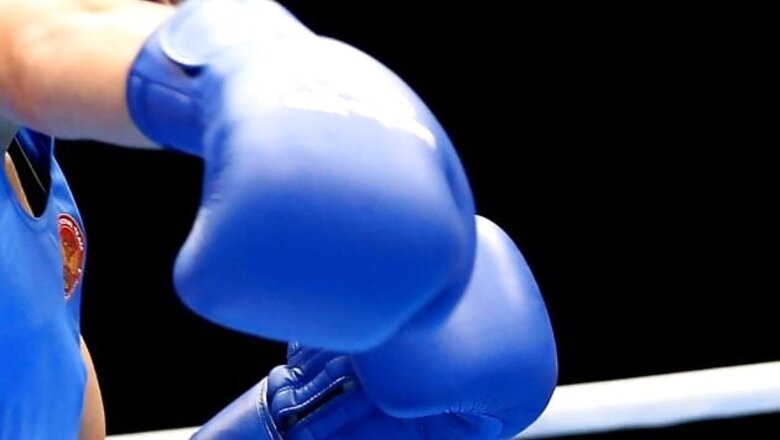
views
New Delhi: Inside the ring, the men and women who mattered gave their blood, sweat and tears to conquer adversity with elan but outside, sparring for power continued to cast a shadow on Indian boxing in a year which was sparkling in parts but also blighted by some unsavoury controversies.
On the brighter side, India were back in the International Boxing Association (AIBA) fold after a new body took charge and there were some lion-hearted performances in the Commonwealth and Asian Games to cheer about.
But things remained a distant far from smooth after the Indian Olympic Association (IOA) refused to grant affiliation to Boxing India while there was some drama inside the ring as well when L Sarita Devi was handed a one-year ban for rejecting her bronze medal at the Asian Games.
The year began with the who-would-form-the-new-federation drama continuing from 2013. The factional tug of war between various groups eager to form the new federation became so ugly that AIBA decided to terminate and derecognise all and formed its own committee to screen the contenders.
Ultimately, a new body did take shape but with the IOA playing hardball and refusing to grant recognition, it remains to be seen how things pan out for Boxing India in the coming year.
On the face of it, the IOA's adamant stand of continuing to recognise the erstwhile Indian Amateur Boxing Federation (IABF) defies logic given that it had chosen to keep mum when the body was terminated by AIBA earlier this year.
The drama outside smacked of political opportunism but inside the ring, the boxers lent out a lesson or two in conquering tough circumstances. Denied international exposure for a better part of the year, the pugilists showed what sheer determination is capable of achieving.
The first major test for them came in the Glasgow Commonwealth Games when the national federation was still in termination and they had to compete under the AIBA flag.
The men had little experience in fighting without head guards at a competitive level, while the women were making their debut at the Games.
They combined to bring home five medals (four silver and one bronze) from the event. Of these, three silver medals were grabbed by men, while a silver and a bronze came from women.
Star boxer Vijender Singh was among the medal winners and to his credit, India's first Olympic and World Championships medallist displayed exceptional form despite lacking in practice and battling a bout of flu through his contests.
Among the women medallists was a certain L Sarita Devi (silver), who later went on to create the year's biggest inside-the-ring controversy by refusing to accept her Asian Games bronze following a controversial semifinal loss.
In fact, the Asian Games in Incheon were a bitter-sweet affair. The men, who had returned with nine medals in the 2010 edition - including a couple of golds, managed just two bronze this time.
But the ever growing legend of MC Mary Kom got bigger as she became the first Indian woman boxer to notch up a gold at the event.
The mother of three from Manipur, who has five world titles and an Olympic medal to boot, fought off younger challengers without breaking a sweat to be the top performer among the boxers.
Her inspiring tale found its way to the big screen as well, with Priyanka Chopra delivering a knockout hit starring in as the diminutive boxer in 'Mary Kom'. In fact, Indian boxers made an impact on cinema in a big way this year with Vijender making his acting debut in Bollywood potboiler 'Fugly'.
However, there was a lot of heartbreak as well when Sarita lost controversially in the Asian Games semifinals despite dominating her bout against South Korean Ji-Na Park.
The defeat caused a massive furore with Sarita breaking down in tears and crying foul after settling for the bronze medal.
Things came to a head when the Manipuri, sobbing bitterly on the podium, refused to accept the medal and tried to put it around her semifinal rival's neck.
The behaviour was roundly condemned by the Organising Committee and the AIBA. The Indian had to ultimately tender unconditional apologies to both the bodies after being defiant for some time.
Later, India's combined sporting might was thrown into defend the boxer with even cricket legend Sachin Tendulkar and Sports Minister Sarbananda Sonowal writing letters to AIBA chief Dr Ching Kuo Wu, pleading for leniency.
The apologies and explanations, however, could not save her from a ban and she was suspended from competition for one year, a punishment that would end in October 2015.
However, it was a massive relief for the Manipuri as there were fears that her career could be over after AIBA President Ching Kuo-Wu went on record saying that she would be heavily penalised for her actions.
India's Cuban coach Blas Iglesias Fernandes, on the other hand, ended up being the worst hit by AIBA's ire as the world body decided to suspend him for two years for calling the judges cheats in interviews that followed Sarita's loss.
The controversy aside, it was a creditable performance by the boxers given the tough circumstances they have been braving since December 2012, when the national federation was first suspended.
But they cannot be expected to keep pulling off good performances if the administrative scene does not improve. The current logjam, primarily caused by the IOA, will hurt the boxers sooner or later and there is a controversy already brewing over whether they would even participate in the January-February National Games in Kerala.
But bigger opportunities could be jeopardised if the matter is not resolved. With Olympic qualification at stake in 2015, it is imperative that the administrators get their act together for boxing to truly revive after the difficult phase of the last two years.



















Comments
0 comment